Coronavirus updates: Safest way to make a DIY face mask
It takes more than covering your face with a bandana or handkerchief to protect yourself from the deadly coronavirus. Here is the best way to make one yourself.
Coronavirus
Don't miss out on the headlines from Coronavirus. Followed categories will be added to My News.
Home-made masks made from quilted fabric and commercial cone shaped masks have been found to provide the best protection from coronavirus.
A new study has found using a folded handkerchief or single layer bandana does not work well.
Researchers from Florida Atlantic University used lasers to visualise the spread of droplets from simulated coughing and sneezing and tested the effectiveness of various masks in a study published in the journal Physics of Fluids.
They found droplets from a cough could travel more than twice as far (3.6 metres) as the current 1.5 metre social distancing guidelines used by the government.
And found the infectious droplets remained suspended in the air for up to three minutes.
“These observations, in combination with other recent studies, suggest that current social-distancing guidelines may need to be updated to account for the aerosol-based transmission of pathogens,” the researchers said.
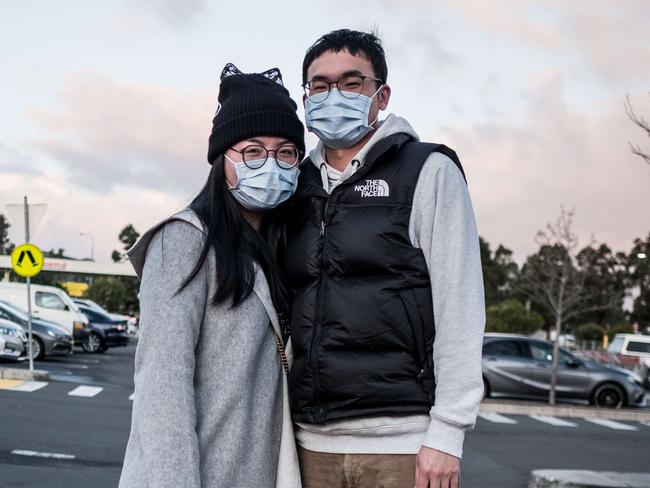
The study found a folded handkerchief mask made following the instructions recommended by the US Surgeon General was not effective.
There was leakage of droplets through the mask material and also from the top edge of the mask, where there were gaps between the nose and the cloth.
A single-layer bandana-style covering was even worse at controlling droplets from coughs and sneezes.
However, well-fitted homemade masks made with multiple layers of quilting fabric were found to be the most effective in reducing droplet spread.
Droplets from a cough travelled only 6.35 centimetres when the mannequin worse this type of mask.
Commercial cone shaped masks were also good at containing droplets which travelled just 20 centimetres when used by the mannequin in study.
The World Health Organisation has also issued guidelines on masks and recommends:
- Masks should have at least three layers of fabric.
- The inner layer that touches the face should be made of absorbent material, like cotton.
- The middle layer should be made of a non-woven material like polypropylene.
- The outer layer should be made of a non-absorbent material like polyester or a polyester blend.
- The edges of the mask must fit closely to the face and not shift when speaking.
- Avoid face masks made from stretchy fabric or gauze or silk they are only 3 per cent efficient at filtering droplets.
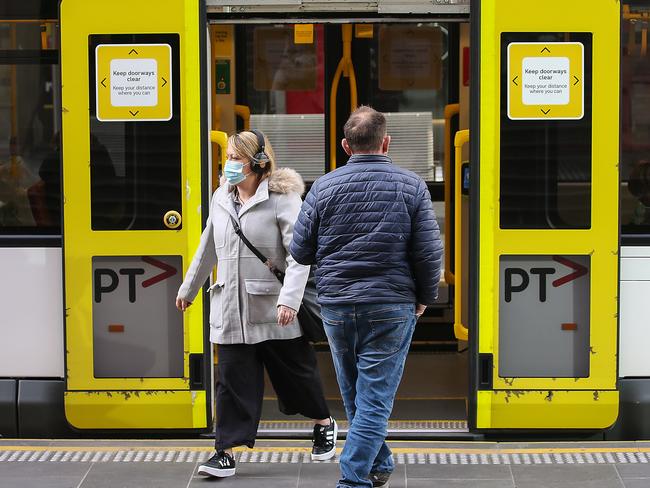
Re-usable masks should be washed frequently in warm hot water over 60°C, with soap or laundry detergent, alternatively wash using room temperature water then boil the mask for one minute.
When removing the mask do so without touching the front of the mask, do not touch the eyes or mouth after mask removal.
Either discard the mask or place it in a sealable bag where it is kept until it can be washed and cleaned. Perform hand hygiene immediately afterwards, the WHO advises.
Masks alone will not stop the spread of coronavirus so you must also wash your hands frequently and practice social distancing.
You can see the WHO guidelines here.
DODGY MASKS REVEALED
Australians may be risking their health by relying on dodgy face masks purporting to protect them from coronavirus.
More than 200 face masks — registered by the nation’s medicines watchdog — have been dramatically withdrawn from sale to hospitals, raising fears about their effectiveness.
But in a bizarre twist, the deregistered masks can still be sold in hardware stores and other shops, so long as they are not labelled for surgical use or marketed as stopping the transmission of the disease.
It comes as residents of Victoria are being urged to wear face masks in crowded public places to protect themselves from coronavirus.
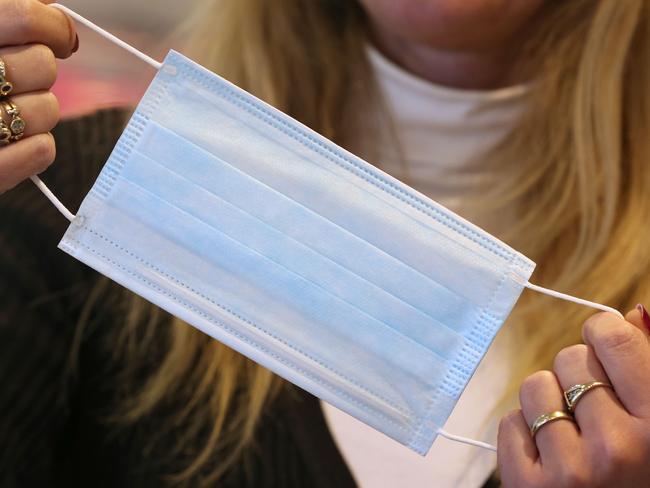
MORE NEWS
The Shark’s Tuesday quiz: Test yourself
Olivia’s tribute to ‘radiant’ Kelly Preston
Qantas offers more reward flights and ‘points planes’
Depp photo showed he was ‘pathetic’, court told
Millions of face masks, many produced in China, were bought into the country under special exemption granted on March 22 that allowed them to avoid checks.
At the time the government was racing to obtain enough personal protective equipment to protect nurses and doctors on the frontline during the first wave of the coronavirus pandemic.
However, late last month after a series of complaints from health workers, the Therapeutic Goods Administration (TGA) announced it would conduct a review into the products to ensure they met safety standards.
It wrote to companies supplying the masks warning them they could face fines if they did not comply.
Hundreds of companies voluntarily withdrew their products from the Australian Register of Therapeutic Goods (ARTG) after receiving the notification, raising doubts about the quality of the products.
You can find the list of face masks withdrawn from the register here.
On its website the TGA said: “Due to a rapid increase in demand for the manufacturing, importation and sale of face masks, there has been an increase in medical device inclusions in the ARTG, with many manufactured and imported from overseas.”
Some KN95 masks tested by medical regulators in the US did not provide consistent and adequate respiratory protection, the TGA said.
Frontline health workers who relied on the masks may not have been protected from the virus and the Australian taxpayer may have wasted millions of dollars on masks for the national medical stockpile that are not fit for purpose.
The TGA told News Corp it was seeking information about where the deregistered masks were supplied and would ensure hospitals and health facilities were told about the cancellations.
The deregistered masks can still be sold in hardware stores and other shops where they do not have to meet the standards set by the TGA because they are not labelled for surgical use or claim to reduce or prevent the transmission of disease between people, the TGA said.
Cloth masks recommended by the Victorian Government were not regulated by the TGA, the watchdog said.
Occupational health and safety expert from the University of Queensland Professor Keith Adam said it was “like the wild west” in March and April with shady operators trying to make a quick buck out of supplying masks in times of high demand.
“The quality had to be dodgy … I’ve seen lots of dodgy masks walking down the street,” he said.
To provide proper protection a surgical mask needed to be at least three layers thick and be made of material that acted as a filter, he said.
A surgical mask would stop the wearer infecting others but would not stop others infecting the wearer.
To protect yourself from infection you need a P2 or N95 mask which filters out 95 per cent of fine aerosol particles, he said.
He recommends the 3M and Drager, Uvex, iQuip or ProChoice brands or anything complying with standard AS/NZS1716.
THE MASKS YOU SHOULD BE USING
P2 face masks recommended by University Queensland expert Professor Keith Adam
*Drager P2 mask cost $49-$119 at Sydney Tools (not currently in stock)
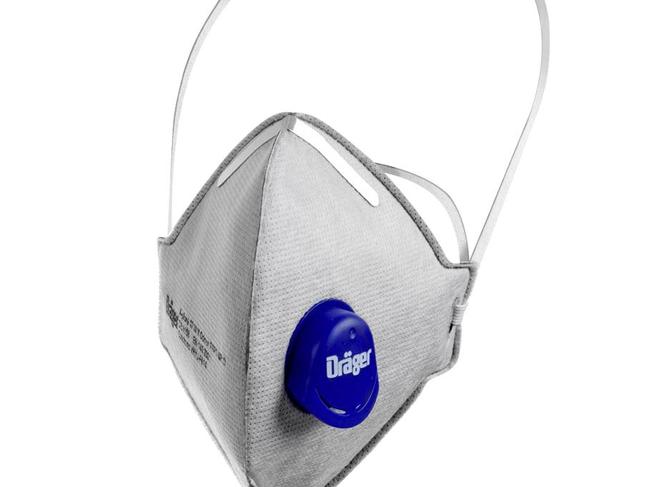
*3M P2 mask available at Bunnings in a 2 pack for $14.95.
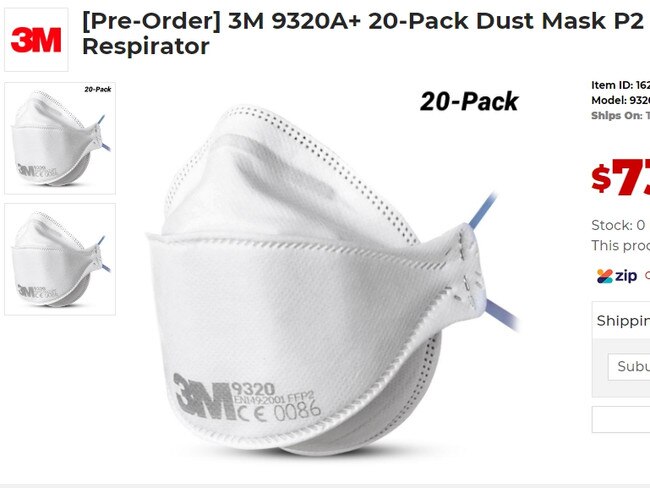
*Uvex P2 sold by Sydney tools $50.95 for a pack of 15 (not currently available)
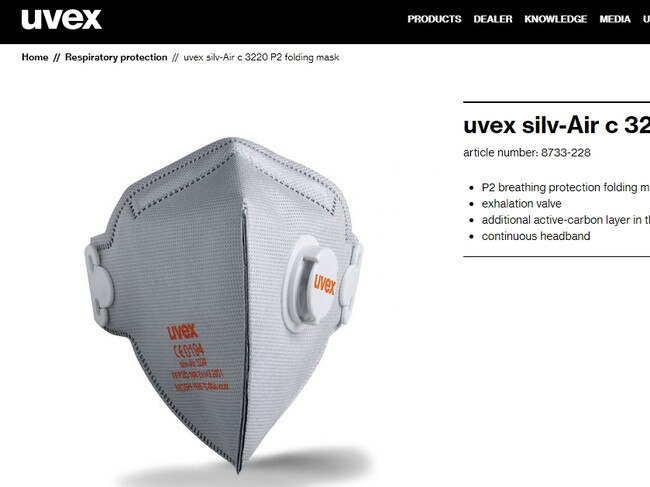
*iQuip P2 sold by Sydney Tools $129 for 10 pack, $39 for 3 is available
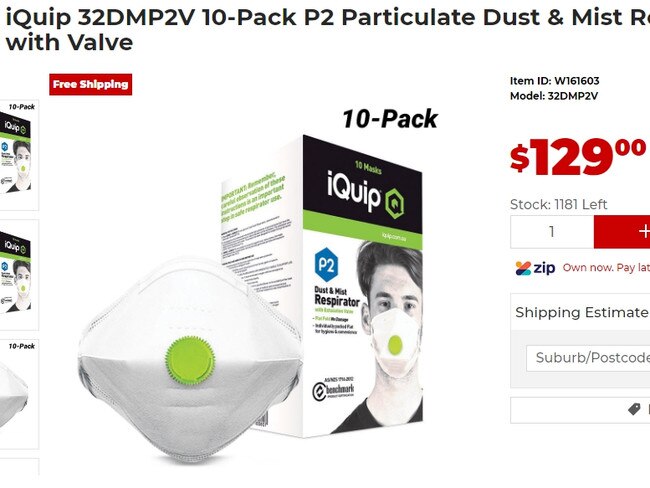
*ProChoice P2 mask Sydney Tools sells them for $129 for a pack of 12 currently available.
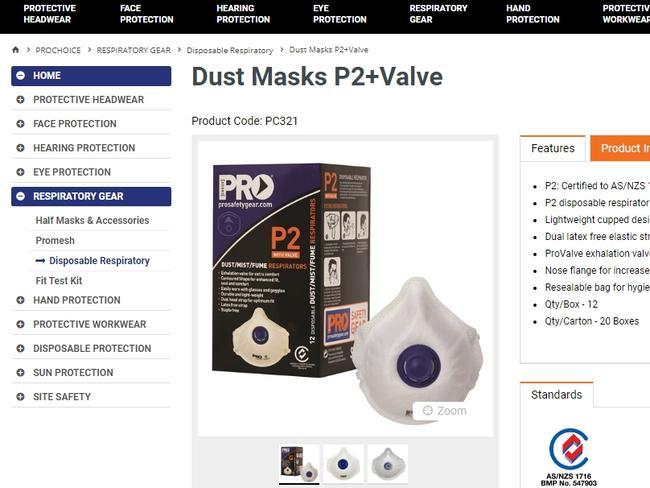
Originally published as Coronavirus updates: Safest way to make a DIY face mask

